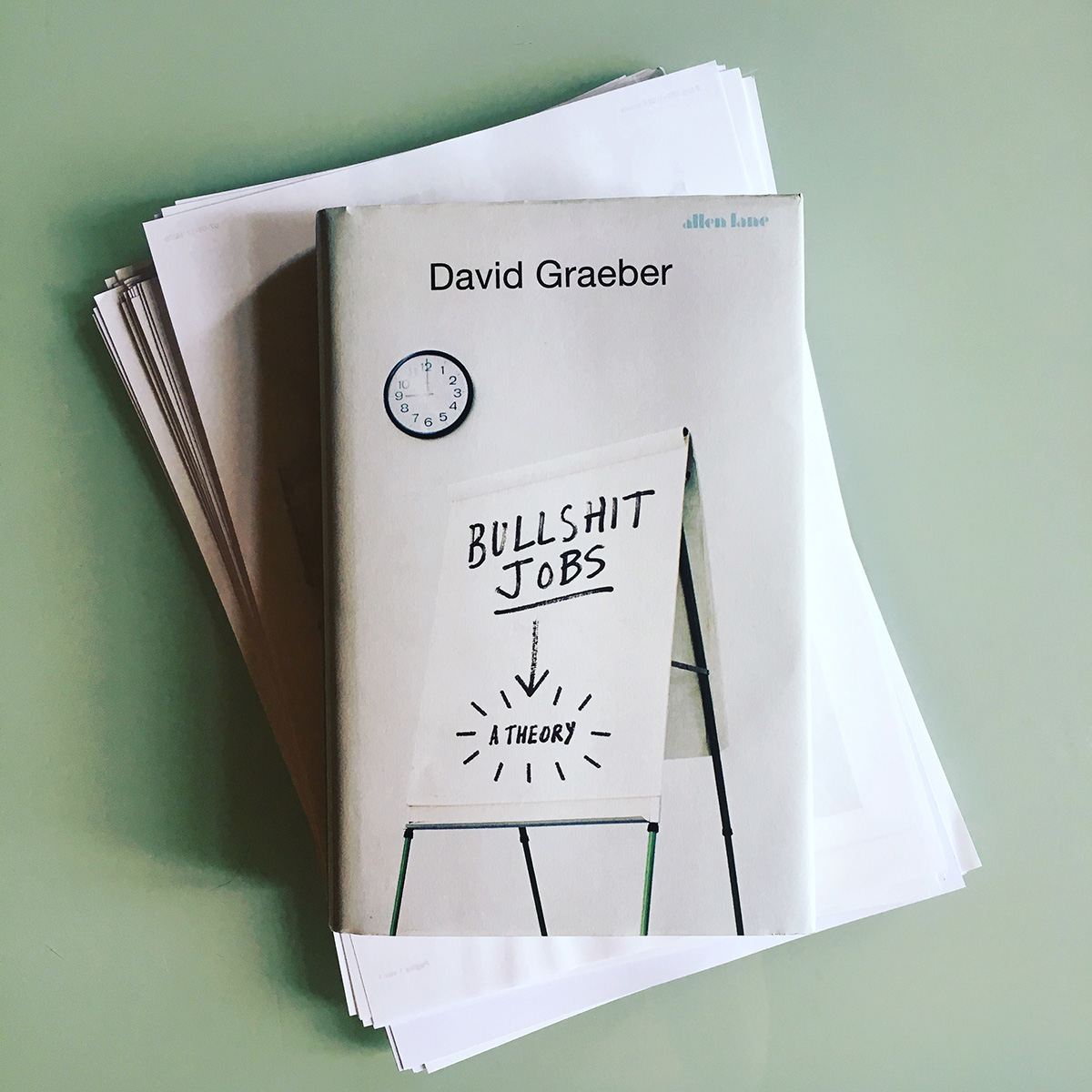Ancient maps marked the accomplishments of discoverers, documenting the world as known thus far, the…
Wisdom at Work: An Interview with Parneet Pal
 In many workplaces around the world, we speak easily about increasing levels of work, stress and burnout. But, is this really something we should take as a given? At Wisdom Labs, a Silicon Valley-based company that offers trainings in resilience, mindfulness, and empathy, their goal is to bring ancient wisdom about a life well lived into the modern workplace. Chief Science Officer Parneet Pal, who visited Amsterdam to host a roundtable at The Next Web conference on The Future of Work, tells us more about the science of well-being, the important connection between presence and action, and how to know when enough is enough.
In many workplaces around the world, we speak easily about increasing levels of work, stress and burnout. But, is this really something we should take as a given? At Wisdom Labs, a Silicon Valley-based company that offers trainings in resilience, mindfulness, and empathy, their goal is to bring ancient wisdom about a life well lived into the modern workplace. Chief Science Officer Parneet Pal, who visited Amsterdam to host a roundtable at The Next Web conference on The Future of Work, tells us more about the science of well-being, the important connection between presence and action, and how to know when enough is enough.
Wisdom Labs asks, “Are you ready for a wiser workplace?” but what does it mean to be “wise” about work?
Our name originally came from the idea of incorporating ancient “Wisdom” techniques—mindfulness and compassion and meditation—into the modern workplace, and we call it “Labs” based on the idea that this hasn’t all been figured out just yet. We’re a lab, discovering along the way. Today’s workplace is a new area for application of these age-old techniques, and we’re exploring how to translate ancient wisdom through the lens of science and evidence to make it practical in the 21st century.
To be wise in the workplace is a combination of things. First, it means to connect with your meaning and purpose and passion, and to align them with your work as much as possible. This alignment isn’t just about you and your work, but also the social impact it has. A wise workplace is one in which you’re not just thinking about the impact of your work in terms of the immediate product or the profit of the company, but on the impact that it has on all the users of the product and on the planet. So, it means asking: Is what I am doing aligned with my passion and purpose and that of the world and the people around me? Second, it means having the skills to pay attention, to be emotionally intelligent, and to form meaningful connections with others in the workplace.
If you can build that combination of things, then you have the kind of workplace where everyone, not just the leaders, is able to feel connected and psychologically safe—where people trust each other enough to show up as themselves, to make mistakes and have that be ok, and to be able to learn from failures. That creates a crucible for innovation and creativity and ideas, which then further enables you to align with your passion and purpose, and do good things in the world. It also translates into better self-care so you don’t sacrifice well-being at the altar of work.
You emphasize the use of science-based practices. When it comes to abstract concepts like mindfulness, how does that work?
The science of mindfulness has really sky-rocketed in the last 25 years, and so, what we do is keep on top of the emerging research and translate that into real-world, practical applications. There is now good evidence that consistent practice helps strengthen our ability to pay better attention, develop emotional intelligence, become more compassionate and also reduce the levels of stress and inflammation in the body. This is great news, especially at work. At the same time, we’re careful to place these findings within the right context. For example, there are studies that show that even 10 minutes of focused attention practice will give your productivity a boost. So, while we want to inform on that research, what we’re quick to emphasize is that that benefit is temporary, right after that practice. We get into neuroplasticity and what’s happening in the brain to show the difference between short-term benefits and long-term rewiring. To get the longer-lasting benefits of managing your stress, developing the qualities of compassion and empathy, and of managing your emotions and regulating them, you have to have consistent practice. It’s just like building a muscle: the more you train, the better you get. A one-off lecture or workshop won’t do.
Why place an emphasis on compassion at the office?
Authentic relationships are at the core of a wiser workplace. And it’s impossible to build meaningful connections without building our capacity for compassion – our ability to recognize stress and suffering (empathy for ourselves and others) along with a motivation to take action and do something to alleviate that suffering. What I love about compassion, what makes it so cool, is that when you give back to others, the person who benefits the most is actually you. Something really amazing happens in our body. It stimulates our parasympathetic nervous system, which is the exact opposite of our fight-or-flight stress response, so the underlying feeling of anxiety and stress that you might have starts to calm down. Your heart rate goes down, your breathing goes down, your muscles relax, your blood vessels relax. So, giving back to others is one of the most effective ways to manage your stress and anxiety, just from a purely physiological point of view. And, on top of this, when we give to others, it also stimulates the feel-good hormones in our body. It stimulates the production of oxytocin, which makes us feel more connected to others, and is also a great anti-stress hormone, as well; it stimulates the production of dopamine, which hits our reward center, makes us feel good and motivated, and also dampens our fear. It makes us feel that much more brave. It also stimulates the production of a hormone called serotonin, which helps us to attune and have access to our best ideas and insights. In summary, when you’re feeling stressed, one of the most effective ways to navigate the situation is to go out and help someone else.
Let’s take a step back. Why is there a need for something like this at all? Why are so many of us sick and miserable at work?
Unfortunately this is a trend that we are seeing consistently across the organizations we talk to:: First, there’s too much work and too little time. Everybody is feeling overwhelmed with the amount of work, causing stress and anxiety, and people don’t know how to manage that. Second, technology affects our availability and our attention. There’s now the underlying expectation that you have to be “on” 24/7. Work often spills over into your weekend or after hours, and most companies have an unwritten understanding that you’ve got to be available all the time in order to get ahead. Third, people are feeling really disconnected and isolated. Suicide rates in the U.S. are at a 30-year high, and 1 in 4 people in the U.S. report that they don’t have a single person that they can talk to when something good or bad happens in their life, so loneliness is increasing.
That’s the background, and when you layer in what’s happening in our world politically, what’s happening to our planet ecologically, and what’s happening with the future in terms of things like AI and automation and job loss, there’s just a milieu of uncertainty and anxiety that people are trying to grapple with while also trying to make a livelihood. I think this is the origin of people’s need to develop skills in being more resilient, navigating stress, managing difficult emotions and building better connections with each other.
Do we run the risk of training ourselves to tolerate work we were never meant to do?
This is a great question and I’m glad you bring it up. In short, no, this training is not about tolerating work we were never meant to do. Let me explain. When it comes to mindfulness, at least the way I understand it, there are two aspects. The first is to pay full attention in any given moment and to give that attention a certain quality. For example, as we’re talking to one another, I want to pay full attention to you and not be thinking about other things, but also, I want to think about the quality of my attention, which means coming to this conversation with a sense of curiosity and openness, rather than being tight or closed off, tired or clinging to my own particular point of view. The second aspect of mindfulness, which people tend to overlook, is to then decide what you are going to do with the information that comes up as you pay attention, and to respond skillfully to it.
When you look at mindfulness and being wise this way, then I think there are only benefits to this training. It’s not about being passive and tolerating everything, it’s actually quite the opposite. If you’re in a situation at work that is unhealthy or toxic or not good for you, and you don’t address that or if you keep suppressing it, this means that you’re not handling your emotions. This is going to affect your health and well-being, and it will obviously also hurt your productivity and performance. It perhaps also means that you’re not really addressing the underlying issues – the systems in the workplace that are creating that stress in the first place.
When we’re mindful, the whole point of the practice is to be able to lean into our discomfort and stay there, to arrive at a better understanding. We can say, “Wow, ok, this is actually happening to me,” and then ask “What is a skillful response in the situation?” A skillful response means something that is good for you and hopefully good for the people around you. So it might help you get to better self-care, as well as looking at how you can become an agent of change in your particular environment. And, if you’re a leader, that’s a great opportunity for you to step back and look at the systems that you’ve created, see that your employees are suffering and this is not working, and to ask how you can do things differently.
On your website, you cite that 83% of American employees are stressed about their jobs. Given this, is it not likely that everyone sees high levels of stress as just the “norm,” rather than a shared pathology?
That is indeed a huge danger. And I think we’re already there. For example, in Silicon Valley, where we’re based, it’s practically a badge of honor: I don’t sleep, I don’t eat, I’m trying to kill it and crush it at work, I’m always on the go.
So, absolutely, more and more exhaustion has become the lifestyle norm that people are trying so hard to live up to. We have to work to correct that, and it’s really difficult because we come across people who say “no pain no gain,” or who say that working like this is the only way to get ahead. What we try to highlight to those folks is that stress lies on a continuum. On one end of that continuum, if we don’t have stress at all, that’s where we find boredom. On the other end of the spectrum is exhaustion and burnout. Somewhere in the middle is the optimum level of stress—in the literature it’s called “challenge stress,” because this is the stress that makes us motivated to perform our best.
What are the warning signs that we’re in that danger zone?
The first sign is physical exhaustion. We all run through sprints in our work schedule, and sometimes you just gotta do what you gotta do, as long as you have a period of recovery, but if you’re just sprinting all the time and feeling completely wiped out, that’s not normal. If you’re not sleeping well, feeling tired all the time, not able to your focus and finding it harder to get through a project, those are some of the signs of physical exhaustion. Your immunity also goes down, and you’ll get sick more easily.
The second thing to notice are signs of emotional exhaustion, for example, if you lose your temper really easily, or you get very quickly frustrated with people. Notice how you show up for your family; if you don’t have the energy to engage in a meaningful conversation with them because you’re just so exhausted, that’s something to pay attention to. If you feel a lot of sadness, fear, anxiety—all of which are good emotions that we as humans need to have throughout our lives—it may be a warning if those emotions take over your day-to-day. Finally, losing a sense of meaning and accomplishment at your work, as well as cynicism is a huge component of burnout: when you just feel like things are never going to change, there is no point in trying, and the system sucks, that’s a red flag, too.
What if someone is just dispositionally cynical?
Well, hopefully they’re more skeptical than cynical! (laughs) But, the main thing is whether or not they are noticing changes in terms of their energy, emotions and connection.
How do you find the sweet spot for a healthy work-life balance?
That’s the million-dollar question. And I don’t know of one answer that applies universally. Everyone is unique and has different circumstances, so ultimately, every person has to figure that out for themselves. A lot of people nowadays talk about “work-life integration,” rather than balance. So, rather than thinking in terms of going home at the end of the working day and turning off, it’s seeing work and life as one continuous process. That works for some people. Especially if you’re a leader at a company, you may not be able to have a magical turn-off point when you go home, so it becomes more important to integrate well.
For me, the best way to get a sense of balance is to do an inventory of the things that matter to me in terms of meaning and fulfillment. Work is part of that, relationships are a part of that, health is a part, and finance, and so on. There are a lot of pieces of that pie that contribute to a whole-some, or full life. One way that people can try to see where they are is to do a check-in every week or every month with a trusted friend, where you can bounce ideas off of one another and just take stock and recalibrate when you notice that some pieces of that pie are off-kilter. There are also some practices at work that are useful for developing a more balanced culture. At Wisdom Labs, for example, we always start our weekly team meetings with a 3-minute meditation, and then we just go around the room with a check-in and ask how everyone is doing as a human being. Not about work, but as a human being. And that’s invaluable, because when we get busy we tend to forget that our co-worker is a person.
I’m also a huge fan of scheduling well-being into your calendar, whether it’s your exercise program, breaks away from your email, to go for a walk or talk to your loved one or meditate, and to just make the time for fun. If it’s in your calendar, it’s easier to get done.
What can we say about people who are unemployed, retired or otherwise not working? Absent a workplace, how should we think of things like shaping work-life balance or orienting yourself toward who you are separate from what you’re doing?
It’s important to find ways to feel that sense of contribution even when you’re not getting paid for it. I’m a huge fan of volunteering in general (whether you’ve got a regular day job or not) but I think especially for those periods when you’re looking for your next venture, volunteering can be really, really useful. It’s a great time to exercise compassion, which I explained earlier has huge benefits for your physical and mental health.
Each of us obviously has many skills, and there are plenty of opportunities out there to offer that skill pro bono for people who are less fortunate than you. And, unfortunately, there is no dearth of people who are less fortunate than you, in any situation. So, start locally and look for how you can contribute at a local charity, a local school, online, or wherever your passion lies, in order to give back.
When we’re in fight-or-flight mode, which you may very well be if you’re unemployed, it’s all about survival, so the perspective of our brain literally narrows. We don’t have access to good ideas and insights. But, when we start focusing on others, when we start to give back with no expectation of anything in return other than to be of service, it actually helps you calm your stress response. It opens your mind up, it makes you more motivated, and it’s healthier for you. And it’s more likely that you will connect with meaningful opportunities from this frame of mind, if you’re unemployed, than from a stressful one. The human body has the wonderful quality of rewarding us when we care for ourselves and others.



